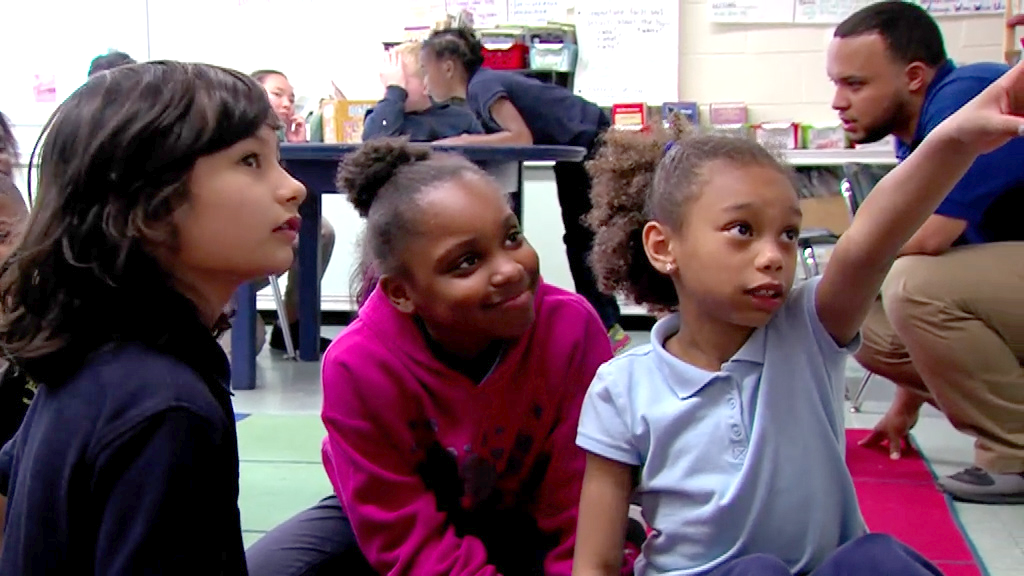Establishing an Equitable Learning Community in the Elementary Mathematics Classroom
October 2, 2023

(NCTM 2014 Principles to Actions)
“The question is not whether all students can succeed in mathematics but whether the adults organizing mathematical learning opportunities can alter traditional beliefs and practices to promote success for all.”
Equitable learning communities focus on the development of students’ mathematical ideas and require a commitment to provide all students access to rigorous, cognitively demanding mathematics, especially those who have been historically marginalized in mathematics classrooms – Black, Latinx, Emergent Bilingual, gender- and neurologically-diverse learners. The Forum for Equity in Elementary Mathematics is committed to supporting teachers with this dual focus—the development of children’s mathematical ideas and the development of equitable learning communities that disrupt patterns of marginalization.
Why focus on equity?
Classrooms are microcosms of a larger society in which racism, power, and privilege converge to empower some students and disenfranchise others. Setting up and sustaining an equitable learning community requires an examination of one’s own beliefs and biases (whether conscious or unconscious) about ourselves and our students as thinkers and doers of mathematics. This kind of purposeful self-examination allows us to think differently about what is (and is not) working. It requires transparency, intentionality, and reflection on the instructional practices we enact. An equitable learning community allows students and teachers the space to reflect on what and how they are learning, their sense of belonging, and how they perceive others.
Without this laser focus on equity we run the risk of reifying patterns of marginalization of students who have historically been underserved in mathematics and perpetuating the myth that there are a privileged few who can do math and are therefore afforded math status in the classroom. In an equitable learning community, teachers dismantle hierarchies and position all students as having valuable knowledge to share. Creating inclusive, equitable math classrooms requires an unwavering commitment to opportunities for both teachers and students to grow, and to together develop a shared classroom authority.
What is an equitable learning community?

In an equitable learning community all students are assured equitable distribution of resources including time to develop ideas, attention to their mathematical thinking, and an assurance that every student will have multiple opportunities to contribute and participate. An equitable learning community challenges all of us as educators to ask ourselves as a regular part of our practice:
- Who has access?
- Whose voices are heard and not heard and why?
- Whose questions are explored?
- Where is the authority for determining right and wrong answers located in the classroom?
- How are mistakes normalized and used as resources for learning?
- Who determines what it means to be successful and how is success measured?
How can an elementary mathematics curriculum support an equitable learning community?
Mathematics teaching and learning is an interaction between students, teachers, and curriculum materials. Teachers are continually present to observe, listen, and facilitate students’ experiences. They are responsible for assessing students’ needs and thinking through how to respond in ways that acknowledge and affirm each student as a math learner. Curriculum materials help teachers determine their math agenda and guide instruction. Materials that explicitly support the development of equitable math learning communities assume that teachers and students are active and contributing participants. They invite teachers to collaborate with the materials to develop a classroom community that reflects an understanding of the mathematics being taught and an appreciation for how students make sense of the mathematics.
What does it take to create and sustain an equitable learning community?
A student-centered curriculum, ambitious mathematics teaching practices, and strong content knowledge are important, but not sufficient in achieving equitable learning communities. Addressing inequitable systemic structures that favor some while excluding others requires sustained attention, reflection on the opportunities for equitable participation, and a commitment to taking action. Partnering with colleagues, students, and their families can provide feedback, insight, and encouragement to sustain you in this work. In addition, this Forum, and upcoming blogs, aim to support you in the work of building and sustaining equitable learning communities that prioritize the development of all children’s mathematical ideas.
References
National Council of Teachers of Mathematics. (2014). Principles to Actions: Ensuring Mathematical Success for All. National Council of Teachers of Mathematics.

Search for related blog posts
